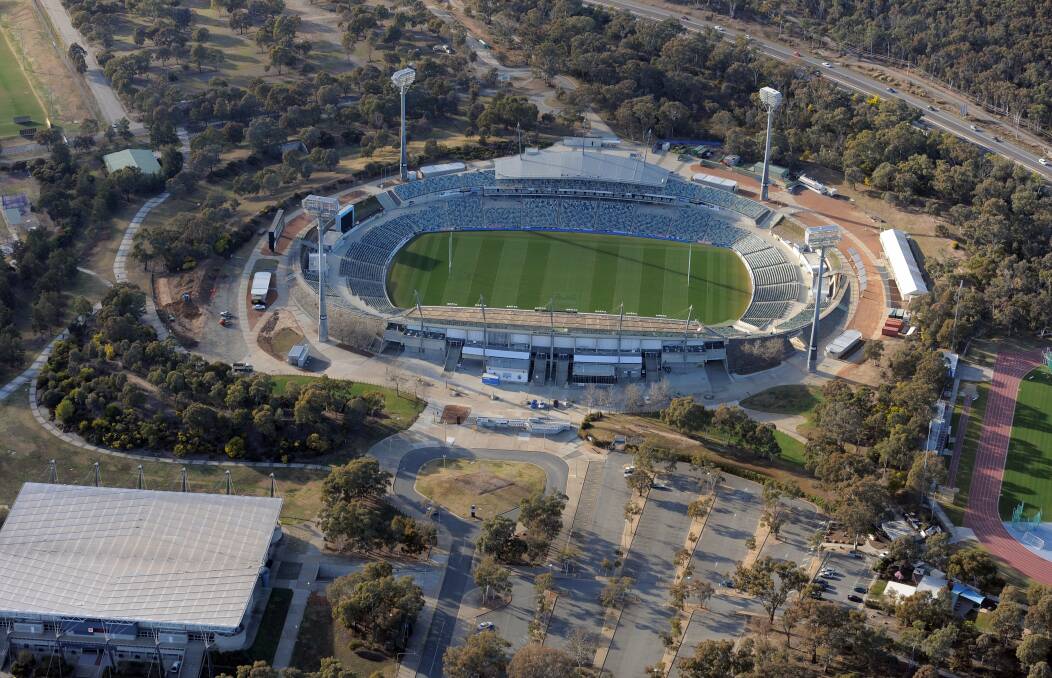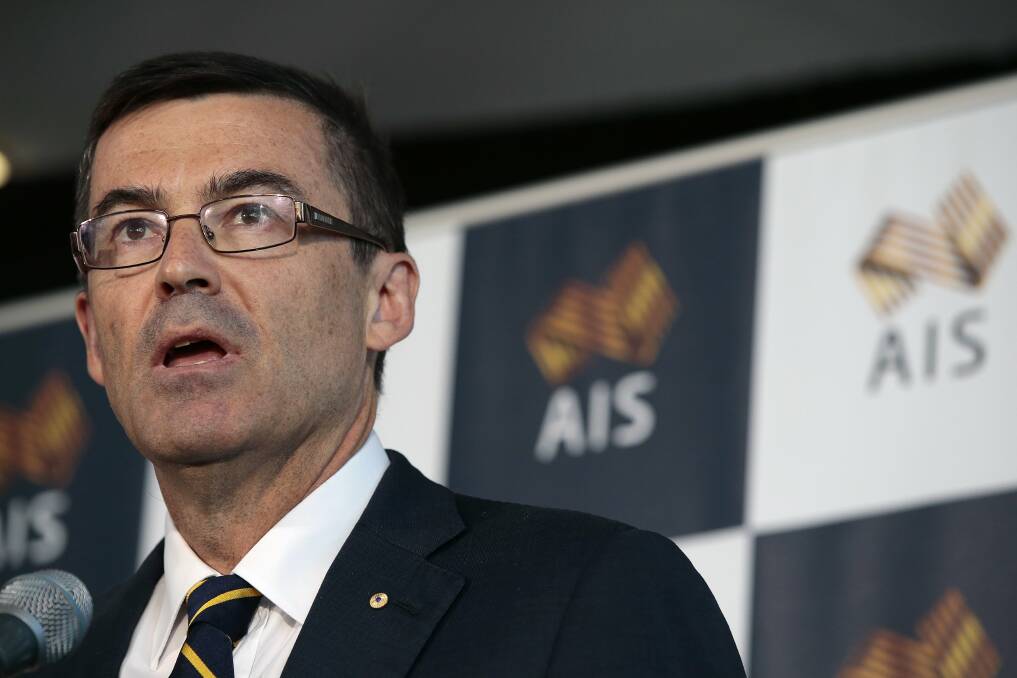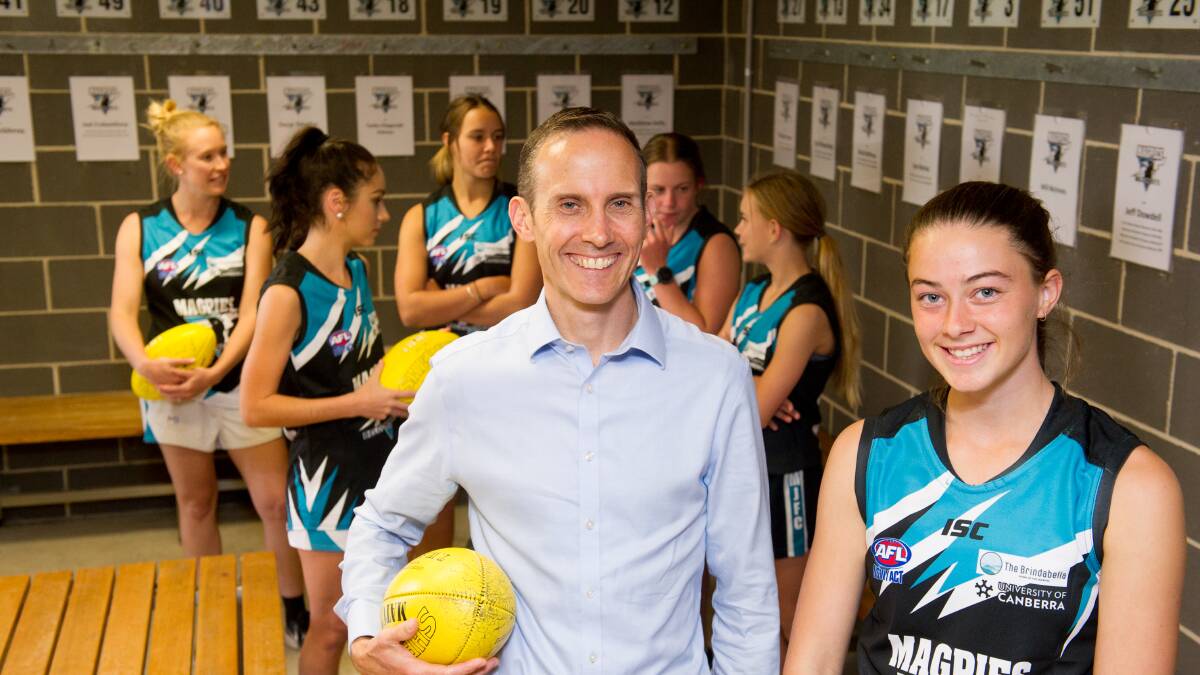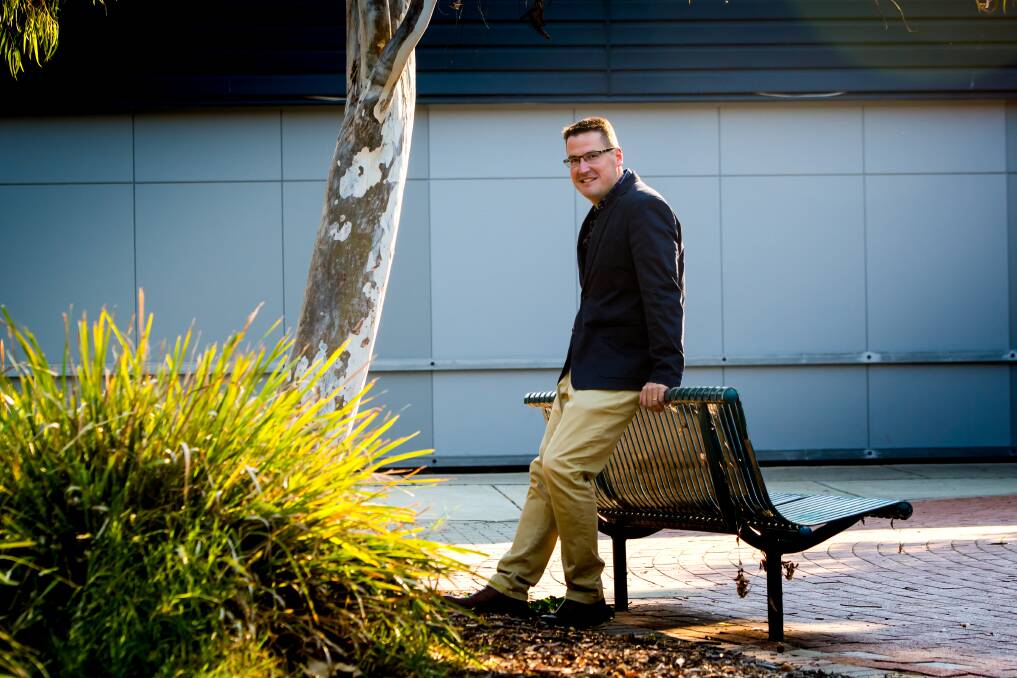The Australian Institute of Sport could cut in half its 65-hectare site and sell land before spending $200 million on a redevelopment to make a new, smaller campus more attractive for elite teams and athletes.
Subscribe now for unlimited access.
or signup to continue reading
Sport Australia submitted an initial business case to the federal government and were given $2 million to fund the next phase of the proposal before the election caretaker period started.

The business case includes designs for a new-look AIS, which would exist on about 30 hectares, roughly half the current 65 hectares used, as well as plans to sell land and major assets, potentially to the ACT government.
The proposal would effectively draw a line down the middle of the existing site, with Canberra Stadium, the AIS Arena and some car parks falling on one side while sports science facilities, basketball and netball training venues and soccer fields would be kept. The AIS athletics track could also be relocated from its existing site to be a part of the new AIS.
The designs and specific cost details, however, are being kept secret until the project is able to secure federal government funding.
Sport Australia and AIS have been conducting an evaluation audit of the ageing facilites, some of which have had irregular upgrades since the AIS was opened in 1981. Sport Australia chief executive Kate Palmer revealed last year the existing facilities were worth $200 million.
The AIS has been criticised as a "ghost town" in recent years after some sports scrapped their Canberra-based scholarship programs when the Winning Edge reform was introduced.
It is hoped a new facility would be a world-leading sports science centre, Sport Australia chairman John Wylie declaring: It would be crazy to allow [the AIS] to deteriorate."

Institute officials believe rebuilding the on-site university-dorm like accommodation will be a massive incentive for teams and athletes to use the AIS.
"Our vision includes contemporary residences that meet the standards and expectations of high performance athletes to train and perform at their best," the AIS said in a statement.
"...Current AIS facilities are aged and no longer support the AIS strategy, which is to enhance our international competitive edge."
Cutting AIS jobs by 30 per cent last year has contributed to the uncertain future of the campus, prompting member for Fenner Andrew Leigh to start a petition to seek answers from government.
"When it comes to the future of the AIS, the Liberals have performed more backflips than a champion gymnast," Mr Leigh said.
"I'm a passionate champion of a stronger AIS, but it needs to be part of an integrated plan to turbocharge high-performance sport across Australia."

One option for the redesign would be selling major assets, including Canberra Stadium and the AIS Arena, and surrounding land to the ACT government for future residential and commercial development.
The ACT government has delayed its plans to build a new stadium in Civic until the AIS finalises its business case. The government pays $350,000 a year to lease the Sport Australia-owned Canberra Stadium for NRL and Super Rugby games as well as major events. The lease will expire at the end of 2024.
It's understood there is a new push for a stadium to be a joint project between the ACT and federal government, pending the result of the election. Some are even keen to have the venue, which could be built over the top of Parkes Way, finished by 2025.
ACT senator Zed Seselja said: "I think there has to be a discussion about a city stadium and I'd like to see the ACT government driving that.
"As a Commonwealth representative, if we come back into government I'd be lobbying hard that we have the discussion about the future of the AIS and the stadium at the same time. They are intrinsically linked.

"The Commonwealth and the ACT governments have shared interest with the land [at the AIS and Canberra Stadium]. We need to find a sweet spot where we can get an outcome where there's reinvestment in the AIS and a new stadium for Canberra. I think a decision on this should be made in the next two or three years.
"... We want to see a continued strong presence of the AIS here in Canberra. It will look a bit different in five years time. But I still want to see it as the absolute pinnacle of elite sport in Australia."


